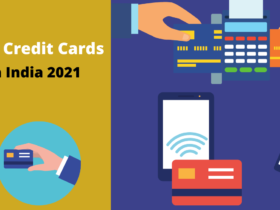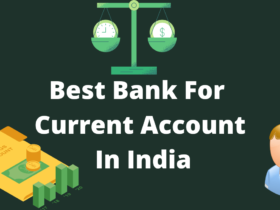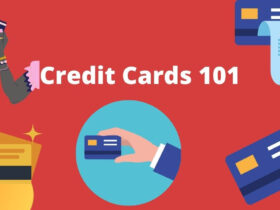You can purchase do or need to pay a bill, credit card work earns back some of the costs in both convenience and efficiency if you have prizes to save money. At the same time, you can also use it to build credit card credit history through healthy financial habits.
What Is a Credit Card?
A credit card is a physical card purchase, pay can be used for billing or card based on the cash dispenser. The easiest way to think of a credit card as a kind of short-term debt.
When you open a credit card account, your credit card company gives you a set credit limit. The amount of essentially the credit card company allows you to use to make purchases or pay bills.
As you become less charge your available credit on things cards. Then you spent to pay back what you credit card company of your credit limit.
Read Also- Top 5 Best Rewards Credit cards in India
How Credit Cards Work
Credit cards online can be used to shop in stores and pay bills. You either use a credit card, then send your card merchant bank details. The bank receives authorization from the credit card network to process the transaction. If your card issuer confirms your information and either rejects or approves the transaction.
If the transaction is used to pay the merchant is then approved, and less than the amount of the transaction to the credit available on your card. At the end of your billing cycle, your card issuer if you sum all transactions, your last remainder of the month and will send a statement the new balance reflects your minimum payments and your due date.
A grace period is the date of a purchase on your card and the period between the listed due date on your statement. During this period, if you pay your bill in full by the due date, no interest charges accrued.
But if you carry a balance month to month, your card issuer to demand interest. Your credit card annual percentage rate or reflects on April the cost of carrying a balance on a yearly basis. Your APR interest rate and other costs, such as an annual fee, if one of your cards include both.
A credit card is a wonderful feature that lets you without having to pay cash for their purchases online or offline. But how a credit card works?
- A number that uniquely identifies it
- An expiry date
- The name of the holder
- The logo of Visa or Mastercard – the two companies that provide the infrastructure and systems that process Credit Card transactions.
On the back of the Credit Card is:
- A magnetic strip or chip
- The CVV number. This is needed for online transactions.
Step 1: Here is the first step in the direction of how credit cards work. You have to use your credit card to complete your purchase at your favorite store and checkout counters. The shopkeeper will swipe his card or be added to a position or point of sale machine. In most cases, will ask you to enter a PIN (Personal Identification Number) to authenticate the store transactions.
Step 2: The machine reads the bar or chip (which contains information identifying the card) and PIN sends information with your issuing bank (for example, HDFC Bank, if you have a bank credit card). Everything looks fine (credit limits, identity, legitimacy, etc.), the Bank approved the purchase.
Step 3: The transaction is approved, the machine charge slip or print a couple of receipts – retailer retains another gives you another copy. In rare cases, where there is no need for a PIN, request a copy of the signature retail charge slip.
How do Credit Cards work online?
Following details:
- Choose whether it is Visa or Mastercard
- 16-digit card number,
- Expiry date,
- CVV
- Name as printed on the card
- Billing address (sometimes)
Once you hit the payment, information is sent to the bank through a payment gateway. Bank transaction sends your registered email ID or OTP or one-time passwords on mobile number to authenticate. If OTP is correct, then complete your transaction.
How to work the credit card, and how credit card payment works: So now we know the answer to two questions. Now glossaries you look at something that will help you understand how to work the credit card.
Credit Cards vs. Debit Cards
1. Core Differences
Credit cards offer you a line of credit that can be used to purchase, balance transfers, and / or cash advances and require that you pay back the loan amount in the future. When using a credit card, you will need to make at least the minimum payment every month on the balance due by the due date.
Debit cards offer a convenient way to extract money directly from your checking account. You will not have any minimum monthly payments. However, if you then not to charge more money you should be careful in your checking account.
2. Transactional and Fee Differences
A credit card can be an annual fee or an introductory annual fee associated with them. The amount of the fee depends on the card and may vary after an introductory period. Some credit cards 101 may also have other fees associated with them depending on the activity. These may include upfront cash fees, balance transfer fees, and foreign transaction fees.
3. Improving Your Credit Score
A credit card provider will report each monthly payment that you make to the three credit reporting agencies. With every monthly bill that you pay, you will contribute your successful rating of your credit score. Regular credit card use allows you to construct credit responsibly as it allows lenders to discover that you can manage credit.
4. Managing Your Finances with Credit Cards
Paying by credit-debit ratio for credit cards on time to reduce that will work to reduce you currently have your credit and improve your credit score. Managing your monthly credit card bill on the due date or before the least important to the minimum monthly payment.
5. Secured Credit Cards
A secured credit card maintains a security deposit which will be deposited in an interest bearing US bank secured savings account under its name. Your monthly payment will still be reported to the Bureau for doing three major credits every month, so it is important to keep your credit score running in order to avoid taxing it.







